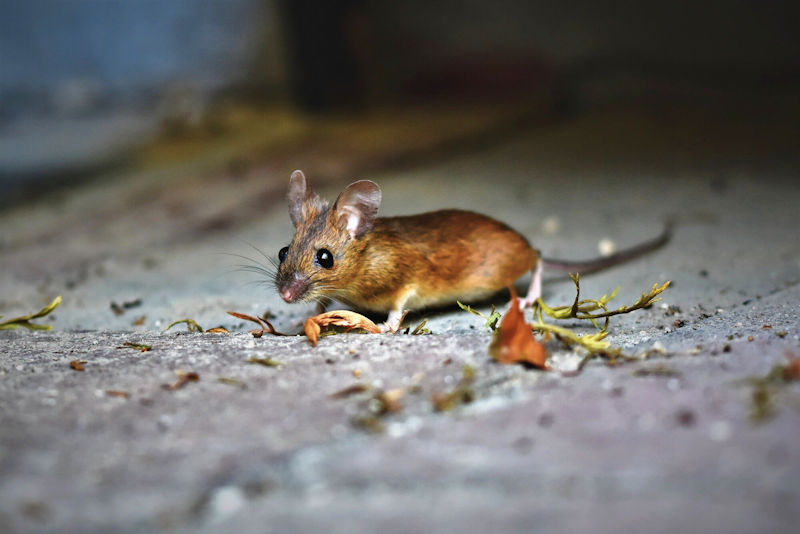Are Mice Making Themselves at Home?
If you suspect mice inside your house, don’t worry! This guide will help you identify signs, prevent infestations, and eliminate them—whether you’re tackling the issue yourself or calling a professional.
Signs of a Mouse Infestation
Early detection is crucial for mouse control. Look for these signs:
- Droppings: Small, dark, pellet-shaped droppings found in areas like the pantry or kitchen.
- Chewing Damage: Noticeable gnaw marks on furniture, wires, walls, or food packaging.
- Nesting Materials: Mice gather paper, fabric, or insulation for nests, often in attics or cabinets.
- Noises at Night: Scratching, squeaking, or scurrying sounds in walls, ceilings, or attics.
- Mouse Sightings: Spotting one mouse often means there are more nearby.
Take immediate action if these signs are present to prevent larger infestations.
Seal Entry Points
Mice can fit through openings as small as a dime! Secure your home with these steps:
- Inspect the Exterior: Use caulk or steel wool to seal cracks in walls, foundations, and siding.
- Fix Door and Window Seals: Install weatherstripping and repair torn screens.
- Secure Utility Lines: Use expanding foam or metal mesh to block gaps around pipes, vents, and wires.
- Protect Your Garage: Ensure garage doors close tightly and use sweeps to seal gaps at the bottom.
Sealing these points creates an effective barrier.
Maintain a Clean, Organized Home
A clean, clutter-free home makes it difficult for mice to find food or shelter. Try these strategies:
- Secure Food: Store food and pet supplies in airtight glass or metal containers. Avoid leaving open packages or crumbs.
- Clean Daily: Wipe surfaces, vacuum floors, and eliminate crumbs in dining areas.
- Proper Trash Disposal: Use tightly sealed bins for indoor and outdoor trash. Empty them regularly to reduce odors.
- Declutter: Remove unused items, old boxes, and papers from storage areas like basements and attics.
These habits help deter infestations.
When to Call Pest Control
If DIY methods fail, bring in professionals:
- Thorough Inspections: Experts can assess the infestation and locate hidden problem areas.
- Effective Treatments: Pest control specialists use safe, targeted solutions for long-term success.
- Prevention Plans: Experts can provide customized advice to keep your home mouse-free.
FAQs About Mouse Control
Q: How can I tell if I have mice or rats?
A: Mice are smaller (2–4 inches long) with pointed noses and small droppings, while rats are larger with blunt noses and bigger droppings.
Q: Can mice climb walls?
A: Yes, they are excellent climbers and can scale walls, pipes, and other vertical surfaces.
Q: Are DIY traps effective?
A: Traps can work for small infestations, but professional pest control is often necessary for bigger issues.
Q: How quickly can a mouse infestation grow?
A: Mice reproduce rapidly; one pair can have up to 60 offspring in a year.
Take Action to Protect Your Home
Don’t let a small mouse problem escalate into a full-blown infestation. From sealing entry points to hiring experts, there are plenty of ways to regain control. A clean, secure home protects your family and ensures peace of mind.
NEED HELP?
If you live in Southern Maryland, or Northern Virginia
FIND YOUR SOLUTION HERE
People, Pet & Pollinator Safe! Pest control for people who care.

